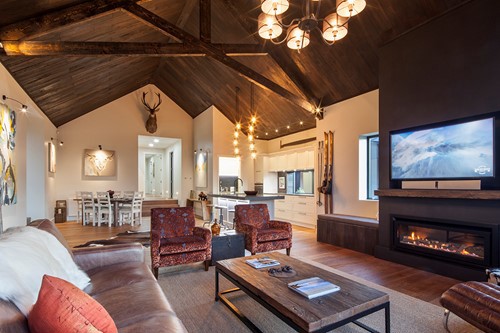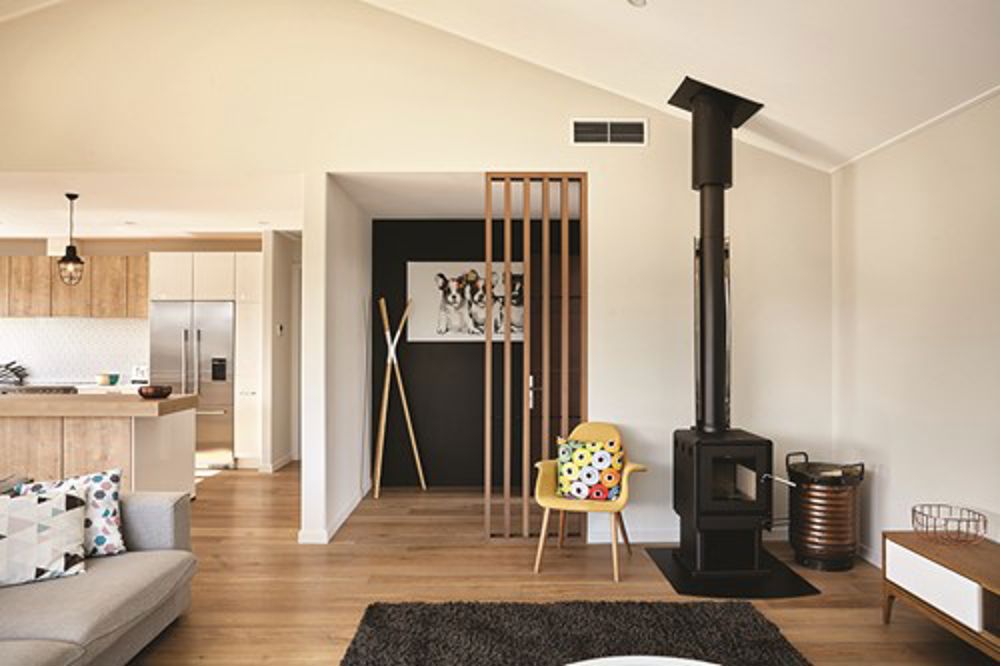-


David Reid Homes are designed and built to weather the extremes, providing warmth, comfort and sustainability to their clients.
David Reid Homes Queenstown director Fraser Mackenzie loves nothing more than creating an energy efficient home and being able to build warm, sustainable homes for his clients, but says there are things you can do to existing homes to increase warmth and reduce energy loss during the colder months.
“The first thing is windows; making sure the windows are closed earlier, at least an hour before the sun goes down, not afterwards,” he says.
On the topic of windows, it’s important to ensure they’re sealed properly, along with all exterior doors, including garage doors.
“That will be the biggest increase or saving on any sort of heating that you can do,” Fraser says.
Despite the stunning views in Queenstown, having good quality curtains or blinds over windows and glass doors can create big heat savings as well.
“Good thermal back curtains make a huge difference to keeping that heat inside the house, or honeycomb blinds; properly installed as well so there’s no gaps at the end,” Fraser says.
Where possible, adding extra insulation is a good way to keep heat inside the home.
“If you can get into the ceiling space, put another layer on top of the existing insulation; that makes a huge difference to the warmth, acting as a double lining,” Fraser says.
It’s important not to cover light fittings when doing this, he adds. “And if you can change the lights, especially taking away any sort of halogen lights, that will help keep the power bills down.”
While more expensive, changing the heating system in a home could have a big impact on its warmth, such as replacing open fires with an alternative, like a standalone fire or heat pump.
“Open wood fires and open gas fires can lose a lot of heat, due to having a big hole on the flue that sucks warm air from the house. Efficiencies in home heating can be gained by replacing those types of fires with standalone woodburners or gas fireplaces.”
If replacing the fire is not an option, Fraser recommends a cover which seals off the fire when it’s not being used.
To find out more about creating an energy efficient home, contact your local David Reid Homes office today.
Improve the warmth of your home

Filed under:
- Build Advice